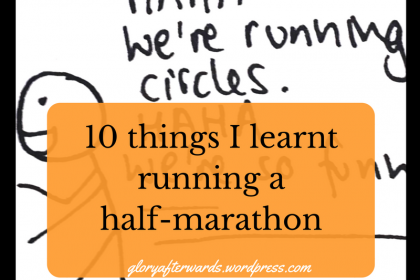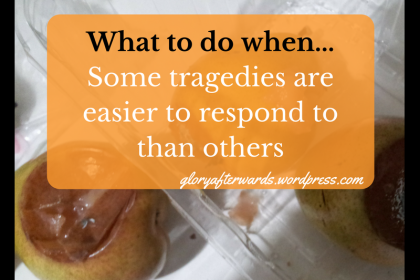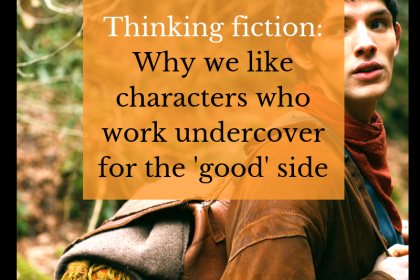Last year I studied a subject out of a post-graduate English masters. It was called “Foundations of Narrative Theory” and it taught me a lot. A lot about my set texts, and analysis and English literature – but also a lot about life in general.
We live retrospectively
Just as we read retrospectively – changing our opinions about characters based on the latest piece of information we receive in the narrative – so we often live retrospectively.
We can’t really help it. After all, we are creatures dwelling in a linear time zone. We can never really do a “double take” – there’s only one way: forward. Our latest experiences are going to seem freshest, more detailed and thus more real.
This can be life-saving. It means marriages can be mended, trust re-won, happiness re-discovered.
Unfortunately, it can also mean that love can be forgotten, steadfastness overlooked, and salvation obscured by the dust of history.
We communicate symbolically
Now bear with me in this one. In my course readings I learnt about “phatic communication”. When we say “How are you?” or “Goodbye!” or even “The weather’s hot today” we are engaging in “phatic communication”. These phrases have a social function, rather than an informative function.
What that means is: Often when we talk about the weather we are not doing so because we urgently need to discuss the temperature at this point in time. Rather we are performing a ‘social function’ – such as “breaking the ice”, “filling the awkward silence” or simply letting someone know that we value them enough to want to engage in communication with them despite not having a better topic.
Now often, this is neither good nor bad, it simply is. After all, we are social creatures. We do not engage in conversation simply to exchange information.
Sometimes, however, it can be hurtful. For instance when “How are you?” simply becomes a symbol for “hi/good to see you?” rather than the actual question. Inquiring into someone’s inner life is what binds us as humans, and so it’s somewhat scary that the most direct way to do this has become a mere greeting.
Phatic communication means that sometimes we have to be creative with our words to get our real point across.
We bring our own themes along
For the course I had to read several books which I would perhaps not normally have read, or, at the very least, chosen to write about. One was an Australian classic I’d read already twice and still didn’t like. Another was a story of ghosts in a graveyard and a human boy. The third was a Young Adult fantasy/romance/dystopian… thing.
As they were so different to what I normally read, I was sure that I would find myself delving into ‘new’ ideas, relationships and themes when it came to writing the essays required. It was only after I’d finished my final essay that I realised that the themes I’d ‘discovered’ in those works were very familiar.
I’d given them greater breadth and depth, because I had new material to work with, but the themes themselves had deviated little.
Our responses to life are always the result of our worldviews. We view every experience thorugh our own unique filter. That’s not to say I simply wrote the same analysis for every essay. Not so. My final piece was on destiny vs. choice and individualism vs. community – neither of which I have written on in great length previously. Yet the things that stood out to me and my treatment of these themes as I waded through the pages of these “not-me” books were very much ‘me’.
Try as we might, we cannot divorce ourselves from our perceptions of the world. So we’d better make sure our worldview is golden, because it impacts everything.
In case you haven’t guessed…
… I enjoyed my post-graduate study immensely! It did what all good education should do: introduced me to new worlds and forced me deeper into my own. Who says studying “the arts” is impractical?











